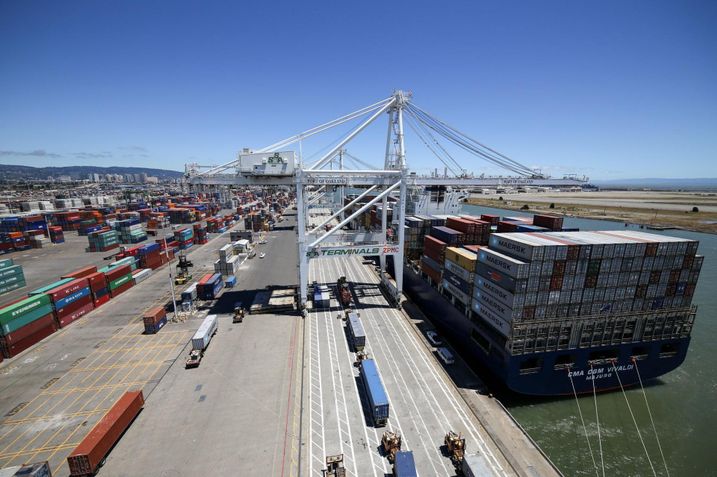West Coast ports are on standby to enact infectious disease
protocols for cargo and crew arriving in the United States, as the rapid
advance of China’s virulent coronavirus continued Monday.

Port of Oakland
Courtesy of Port of Oakland
West Coast ports handle more than a third of America’s container
imports, acting as a gateway for most of the Asian markets. They are a
critical beginning point for the country’s supply chain and its
industrial and retail sectors, which are watching the virus’ spread
around the world.
Several Asian ports, including Laos, closed their borders entirely
this week. Port officials in Los Angeles, Oakland, San Francisco and
Seattle told Bisnow Monday they are waiting for further directives from
state and federal authorities before they begin screening cargo or crew
arriving from destinations that have reported outbreaks.
Port of Seattle spokesperson Kate Hudson said federal agencies are
following the lead of the Centers for Disease Control and Prevention,
which sets protocols for health authorities federally and at the state
level. One of the five confirmed U.S. cases was diagnosed in Seattle.
A memo making its way through maritime circles and reviewed by
Bisnow advises vessel operators that the U.S. Coast Guard would take the
lead on some types of screening.
“Vessel representatives are required to report sick or deceased
crew/passengers within the last 15 days to the CDC under 42 CFR 71.21,”
reads the advisory, issued by Coast Guard Capt. Kailie Benson, out of
the Office of Emergency Management and Disaster Response. “The Coast
Guard will continue to review all ‘Notice of Arrivals’ in accordance
with current policies and will communicate any concerns stemming from
sick or deceased crew or passengers to their Coast Guard chain of
command and the CDC quarantine station who will coordinate with local
health authorities.”
The U.S. Department of Transportation’s Maritime Administration,
the Coast Guard and the National Security Administration would work in
tandem with health authorities and West Coast ports to spot goods or
people that may need to be quarantined. In several places, ships and
goods come through a central port first before heading to a regional
one, including in Oakland, where U.S.-bound goods first enter the Port
of Los Angeles before heading north.
“[The] Coast Guard confirms health of crew with vessel master
before boarding ships, and the Coast Guard reports illnesses to [the]
Centers for Disease Control,” Port of Oakland spokesperson Mike Zampa
said Monday. “No incidents have been reported.”
The coronavirus originated in Wuhan, China, and has spread
virulently despite a lockdown by the Chinese government of that city and
nearly a dozen of its neighbors. As of Monday afternoon, at least 82
people were confirmed dead of the virus worldwide, and Chinese
authorities said at least 2,800 are currently infected, with the virus
increasing in strength, possibly allowing it to spread before a patient
is symptomatic.
The mayor of Wuhan said Monday that he estimates 5 million people
have already left the city. Several West Coast airports, including San
Francisco and San Jose, have been screening travelers arriving from
affected areas of China.
Also on Monday, the U.S. State Department issued travel advisories
for Americans planning nonessential travel to China, ratcheting their
threat level up to 3, and saying, “Travelers should be aware that the
Chinese government could prevent them from entering or exiting parts of
Hubei province,” and noting that restrictions on travel might be put
into effect with “little or no advance notice.”
American authorities said Monday that they are investigating around
100 possible outbreaks in 26 states. The CDC said Monday that the
coronavirus does not appear to be spreading in the U.S. The agency
maintains a list of its 20 quarantine stations here.
“We understand that many people in the Unites States are worried
about this virus,” Nancy Messonnier, director of the National Center for
Immunization and Respiratory Diseases (part of the Centers for Disease
Control and Prevention), told ABC News. “At this time, in the U.S., the
virus is not spreading in the community. For that reason we continue to
believe that the immediate health risk from the new virus to the general
public is low at this time.”
No comments:
Post a Comment